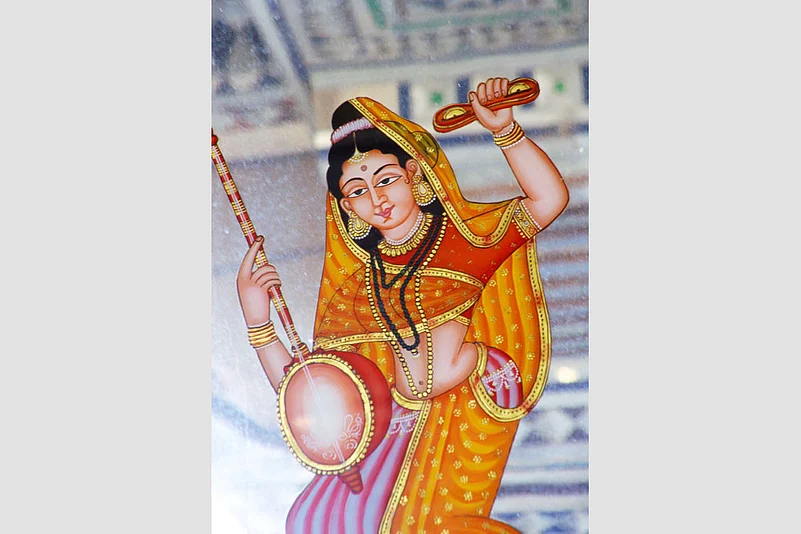Across north India, the brief season of spring weather erupts with the festival of Holi—a no-holds-barred celebration in the villages and city streets. Water-sprays everywhere, children throw coloured powder at each other, and soggy T-shirts and kurtas abound. It’s a holiday some girls experience as an equalising moment, a rare chance to play freely with boys. Other girls, though, view Holi warily—as a celebration that gives cover to sexual harassers. It’s a charged moment in the gender politics of Indian life, and in many communities the soundtrack to that experience is Rang barse, as performed by the Bollywood legend Amitabh Bachchan in a film from the 1980s.
The only atypical thing about this song is the strong-willed woman it celebrates: she’s over 500 years old. The film lyricist based it on a centuries-old song about Mirabai, a mystic poet of spiritual love and longing who lived during the 16th century and is today one of India’s most revered female saints.
She was born Mira, into an elite and conservative warrior caste, the Rajputs of Rajasthan (the ‘bai’, a term of respect, came later). A flouter of conventions whose family tried to suppress her ecstatic religious longings, she broke with them and their Rajput social codes. She took to the road, singing and mixing freely with people of all types. She later became a heroine of the bhakti tradition, which encouraged devotion to one’s personal god, without the intermediaries of priests, rituals or temples. In bhakti, all you need is a simple offering of your love—a flower, a fruit, a song. In her lifetime, Mira composed perhaps a hundred songs called bhajans, which were passed down through the centuries by oral tradition, as with Khusrau and Kabir. And, like their bodies of work, Mira’s expanded as her legend grew.
























